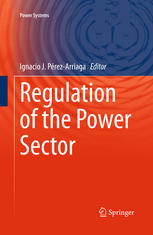

Most ebook files are in PDF format, so you can easily read them using various software such as Foxit Reader or directly on the Google Chrome browser.
Some ebook files are released by publishers in other formats such as .awz, .mobi, .epub, .fb2, etc. You may need to install specific software to read these formats on mobile/PC, such as Calibre.
Please read the tutorial at this link: https://ebookbell.com/faq
We offer FREE conversion to the popular formats you request; however, this may take some time. Therefore, right after payment, please email us, and we will try to provide the service as quickly as possible.
For some exceptional file formats or broken links (if any), please refrain from opening any disputes. Instead, email us first, and we will try to assist within a maximum of 6 hours.
EbookBell Team

5.0
90 reviewsRegulation of the Power Sector is a unified, consistent and comprehensive treatment of the theories and practicalities of regulation in modern power-supply systems. The need for generation to occur at the time of use occasioned by the impracticality of large-scale electricity storage coupled with constant and often unpredictable changes in demand make electricity-supply systems large, dynamic and complex and their regulation a daunting task.
Arranged in four parts, this book addresses both traditional regulatory frameworks and also liberalized and re-regulated environments. First, an introduction gives a full characterization of power supply including engineering, economic and regulatory viewpoints. The second part presents the fundamentals of regulation and the third looks at the regulation of particular components of the power sector in detail. Advanced topics and subjects still open or subject to dispute form the content of Part IV.
In a sector where regulatory design is the key driver of both the industry efficiency and the returns on investment, Regulation of the Power Sector is directed at regulators, policy decision makers, business managers and researchers. It is a pragmatic text, well-tested by the authors’ quarter-century of experience of power systems from around the world. Power system professionals and students at all levels will derive much benefit from the authors’ wealth of blended theory and real-world-derived know-how.